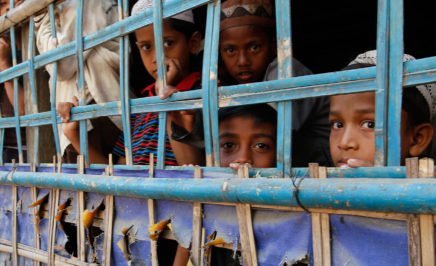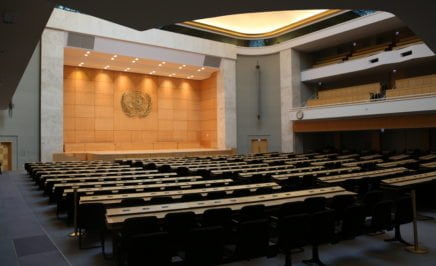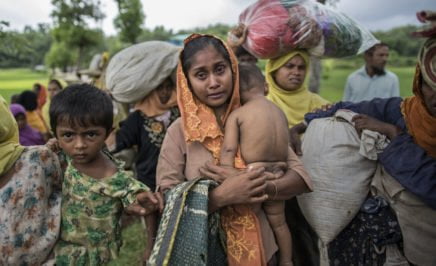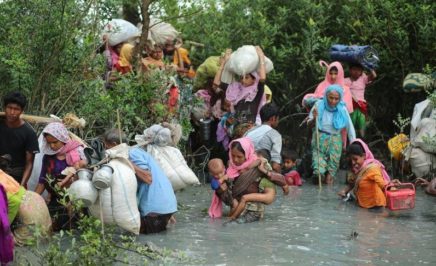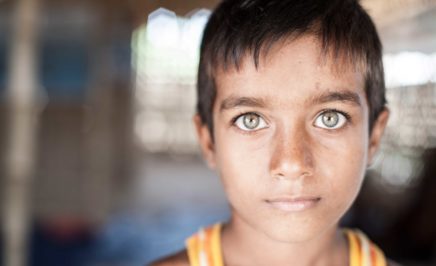With the threat of returns to Myanmar once again looming over Rohingya refugees in Bangladesh, Amnesty International warned that Rakhine State remains unsafe while those responsible for atrocities continue to evade justice.
This Sunday marks two years since the Myanmar military launched operations in Rakhine State which forced more than 740,000 Rohingya women, men and children to flee their homes and villages. The brutal campaign was marked by widespread atrocities, which a UN investigation team has said amount to crimes against humanity and likely genocide.
Despite international outrage and the adoption of a UN Human Rights Council resolution to pursue accountability in Myanmar, the generals who oversaw the attacks on the Rohingya are still in their posts. In May 2019, Amnesty International documented how the military had carried out new war crimes during the conflict with the Arakan Army in Rakhine.
“Bangladesh and Myanmar’s recent proposal to repatriate thousands of Rohingya has triggered widespread fear in the refugee camps. Memories of murder, rape and torched villages are still fresh in the minds of Rohingya refugees. With Myanmar’s military as powerful and remorseless as ever, it remains unsafe for anyone to return to Rakhine,” said Nicholas Bequelin, Amnesty International’s Regional Director for East and Southeast Asia.
“This grim anniversary is a stark reminder of the failure of the UN Security Council to stand with the survivors and bring the perpetrators of mass atrocity to justice. The Security Council must urgently refer the situation in Myanmar to the International Criminal Court, and impose a comprehensive arms embargo.”
Nicholas Bequelin, Amnesty International Regional Director for East and Southeast Asia
A nightmare on both sides of the border
The Rohingya continue to be denied their rights on both sides of the Myanmar/Bangladesh border. In Myanmar, hundreds of thousands of Rohingya live under a system of apartheid, confined to overcrowded camps and ‘prison’ villages where they are denied freedom of movement and have severely limited access to schools and health care.
The military tightly controls access to Rakhine State, which means international oversight to monitor anyone who returns will be extremely difficult. For the past two months, authorities have imposed a telecommunications blackout on northern and central Rakhine State, isolating those areas even further.
The military’s murderous purge of hundreds of Rohingya villages in northern Rakhine State in late 2017 killed at least 10,000 Rohingya women, men and children, according to an estimate from the UN Fact-Finding Mission, and forced more than 740,000 to flee across the border into Bangladesh, where they remain today. A June 2018 Amnesty International report named 13 officials in the security forces – all the way up the chain of command to Senior General Min Aung Hlaing – who should be investigated and prosecuted for crimes against humanity. The European Union has imposed targeted sanctions on 11 of the 13 singled out in that report.
In May 2019 Amnesty International documented how Myanmar’s military had launched new operations in Rakhine State, following coordinated attacks on police posts by the Arakan Army (AA), an ethnic Rakhine armed group. The military response has included unlawful attacks that killed or injured civilians, extrajudicial executions, arbitrary arrests, torture and other ill-treatment, and enforced disappearances. Many of these violations amount to war crimes.
In Bangladesh, more than 910,000 Rohingya, including people who fled previous waves of violence, live in refugee camps where they are often denied basic rights. The Bangladeshi government imposes severe restrictions on their lives – they cannot work or move around freely, and children cannot go to school.
Since signing a repatriation arrangement in November 2017, the governments of Bangladesh and Myanmar have on several occasions announced plans to begin returning Rohingya refugees to Myanmar. In November 2018, repatriation plans were called off amid international outcry over the lack of consultation with the Rohingya and with Myanmar’s failure to ensure an environment for safe returns.
On 15 August, the two governments again announced repatriation plans, saying they had agreed on a list of 3,540 Rohingya refugees to be returned. Bangladesh authorities have said that returns will only occur if they are safe, voluntary and dignified, but the Rohingya have once again not been properly consulted. Moreover, the Myanmar authorities’ failure to ensure accountability for atrocity crimes and to dismantle the system of apartheid means the situation precludes safe and dignified returns.
“For remaining Rohingya, Rakhine State is nothing but an open-air prison. The Myanmar authorities have done virtually nothing to correct the situation and in fact continue to commit crimes against humanity. International donors, including regional governments, must ensure that they do not facilitate ongoing crimes, and instead press Myanmar to restore the Rohingya’s rights, including citizenship rights,” said Nicholas Bequelin.
“Meanwhile, the international community must work with Bangladesh to support Rohingya refugees to rebuild their lives in dignity. No decisions about the future of the Rohingya should be taken without proper consultation with the Rohingya themselves.”
International community still failing the Rohingya – and failing to ensure justice
On 27 September 2018, the UN Human Rights Council adopted a resolution to create an accountability mechanism to collect and preserve evidence of crimes under international law in Myanmar. Other accountability efforts have included targeted sanctions against military officials by several states and by the European Union, as well as a request from the Prosecutor of the International Criminal Court to open an investigation into crimes under the Court’s jurisdiction committed against the Rohingya population since October 2016.
Amnesty International has welcomed these steps towards accountability, but continues to call for the situation in Myanmar to be referred to the International Criminal Court, including all atrocity crimes against the Rohingya, as well as ongoing war crimes against ethnic minorities in Kachin, Rakhine, and Shan States.
“The situation for the Rohingya and Myanmar’s other persecuted ethnic minorities will never improve until Myanmar’s military faces justice for its appalling crimes,” said Nicholas Bequelin.
“The humanitarian response to help the Rohingya rebuild their lives must go hand in hand with a robust pursuit of accountability. The international community has repeatedly failed the Rohingya in the past – it must not do so again.”

